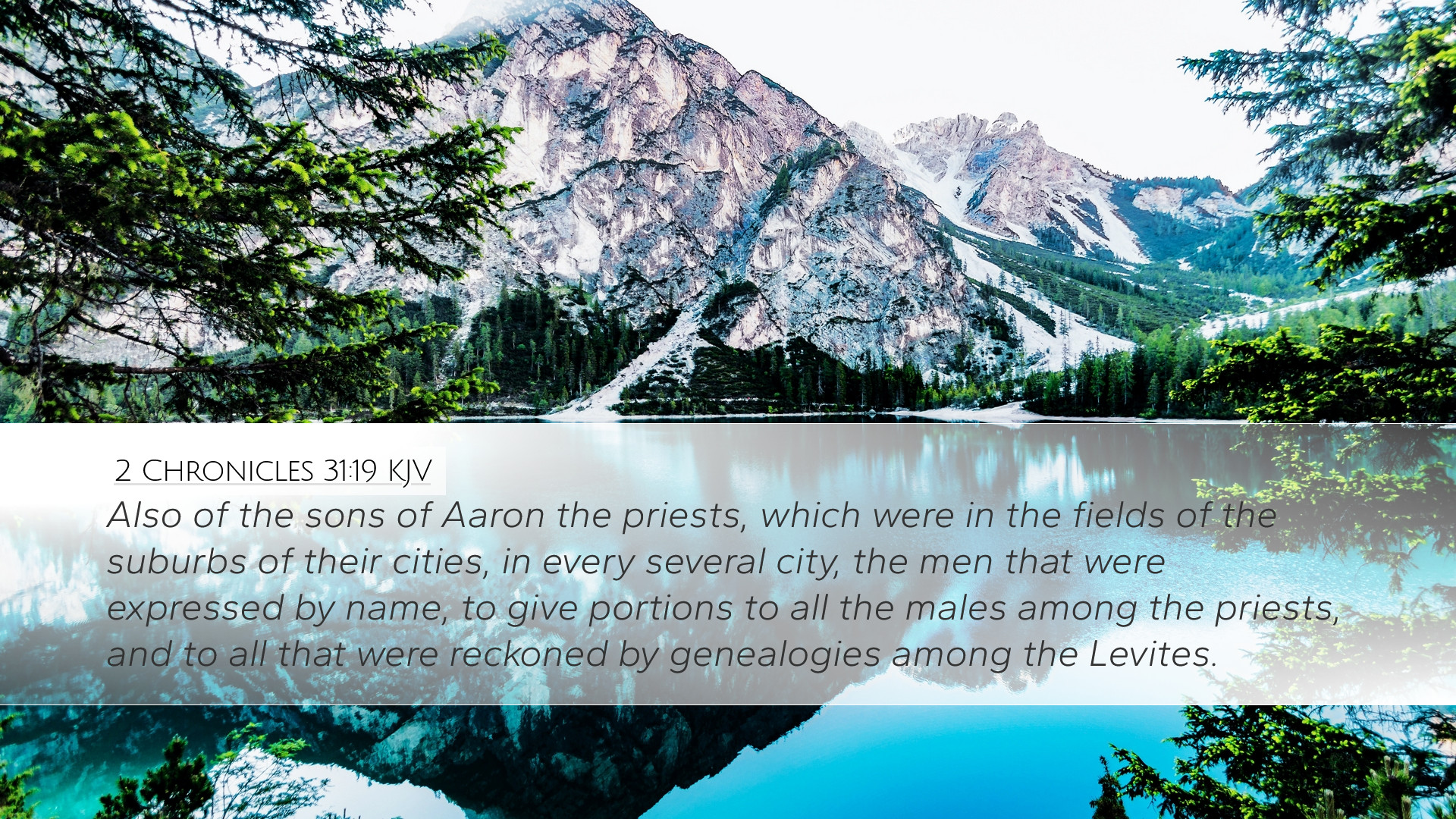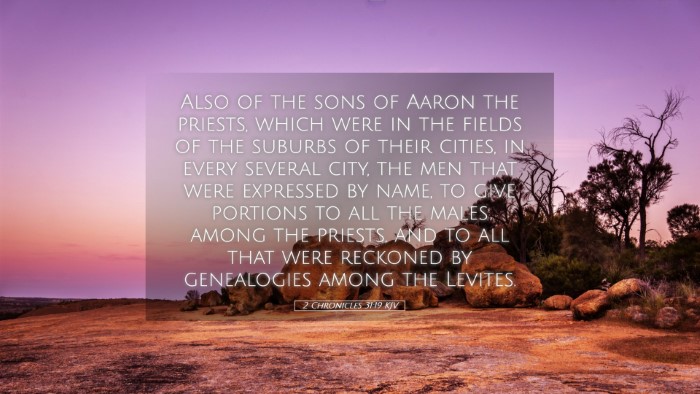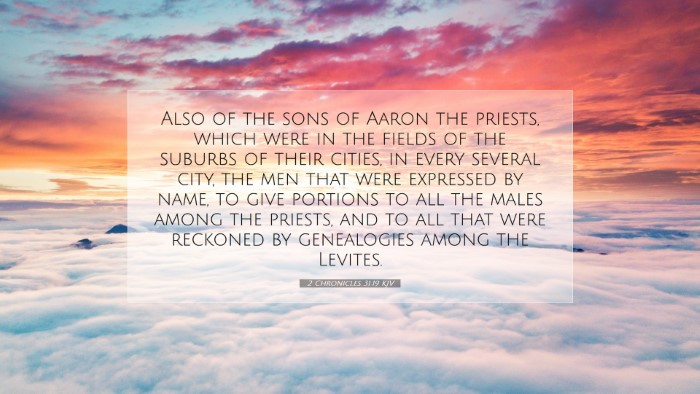Commentary on 2 Chronicles 31:19
Verse: "Also of the children of Aaron, the priests, which were in the fields of the suburbs of their cities, in every several city, the men were mentioned by name, to give portions to all the males among the priests, and to all that were reckoned by genealogies among the Levites."
Contextual Overview
This verse occurs within a broader narrative about King Hezekiah's reform and restoration of temple worship in Judah. The preceding chapters detail the purification of the temple, the reinstitution of proper sacrifices, and the reestablishment of the Levitical priesthood in its rightful order.
Hezekiah's regime marked a significant turn from idolatry to the exclusive worship of Yahweh, aligning the practices of the priesthood and Levites with the commands of the Law.
The Theological Significance
1. Restoration of Proper Worship: The emphasis on appointing priests and Levites to their respective duties illustrates the necessity of restoring true worship in Israel. Matthew Henry notes that Hezekiah acted to reinstate the divinely ordained structure of worship, ensuring that those called by God to serve were properly cared for and recognized.
2. The Role of Genealogy: The mention of genealogies serves to underscore the importance of a legitimate priesthood. Adam Clarke points out that the lineage of the priests was essential to establish authority and continuity in the Levitical order. It implies that God's covenant with Aaron is maintained through recognized descendants.
Insights from Commentators
Matthew Henry's Commentary
Henry observes that the priests' provisions reflect God's care for His servants. He emphasizes how the portioning out of provisions was a means of sustaining those engaged in spiritual duties. This highlights a dual aspect of community responsibility — both in providing for the priests and ensuring they focus on their spiritual roles without distraction.
Albert Barnes' Notes
Barnes adds depth by explaining that the priests' service was essential for the overall spiritual health of the community. He articulates that the methodical organization of the priesthood by Aaron’s descendants ensured that every priest received appropriate support, encouraging them to lead the people in holiness.
Adam Clarke's Commentary
Clarke provides insights into the administrative aspect of Hezekiah's reforms, noting the methodical approach to reestablishing worship. His analysis suggests that the specific mention of names implies a personal and accountable system of leadership, enhancing the community's relationship with their spiritual leaders.
Practical Applications
- 1. Importance of Structure in Worship: This passage illustrates the need for order and structure in our worship practices today.
Implication: Churches must recognize the importance of their spiritual leaders and support them through consistent provision and encouragement.
- 2. Genealogy and Heritage: The focus on lineage reminds believers of their spiritual heritage in Christ, who is both the high priest and the fulfillment of the Law.
Implication: Understanding our identity in Christ shapes our approach to worship and service.
- 3. Community Responsibility: The community's role in supporting priests demonstrates the necessity of mutual responsibility among believers.
Implication: Every member of the church should feel empowered to contribute to the life and work of the church.
Conclusion
In 2 Chronicles 31:19, we observe a remarkable example of the restoration of worship through divinely appointed leadership, community responsibility, and structural faithfulness. A careful study reveals that the health of the community's spiritual life is closely linked to how well they recognize and support their leaders.


